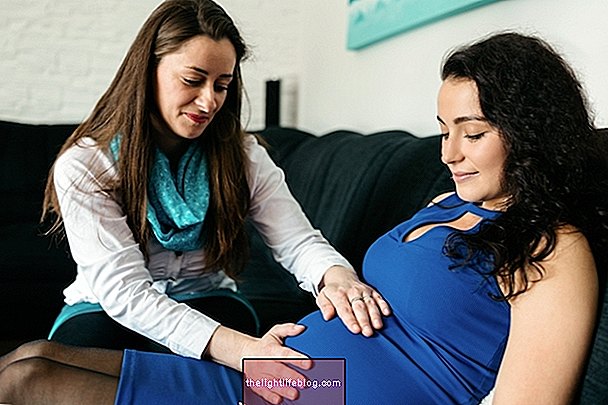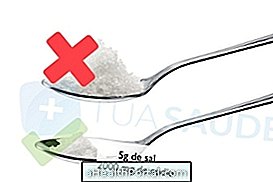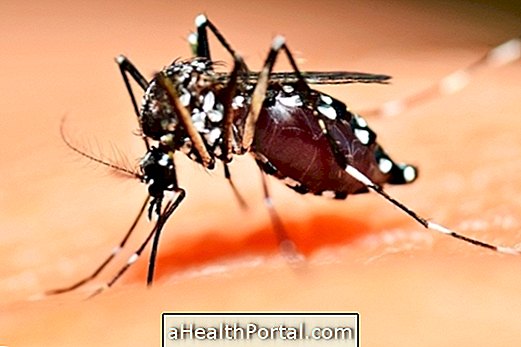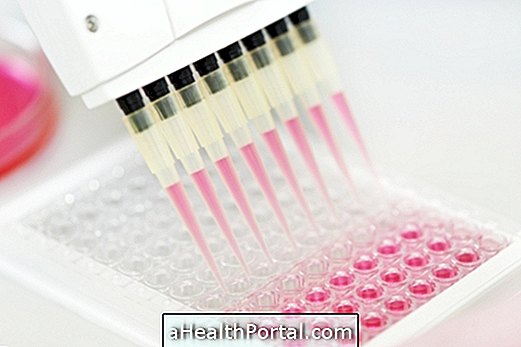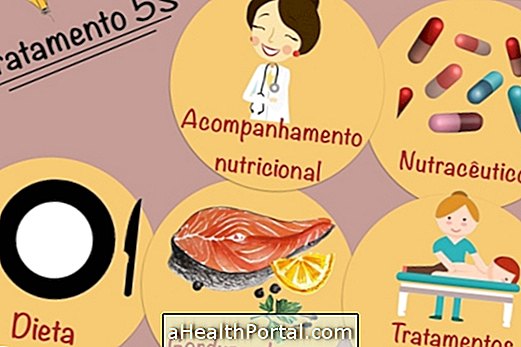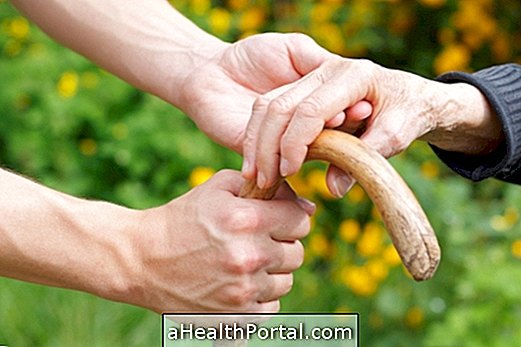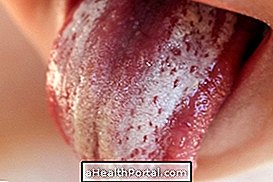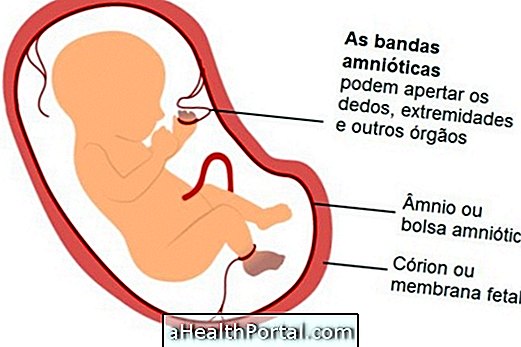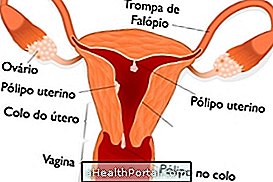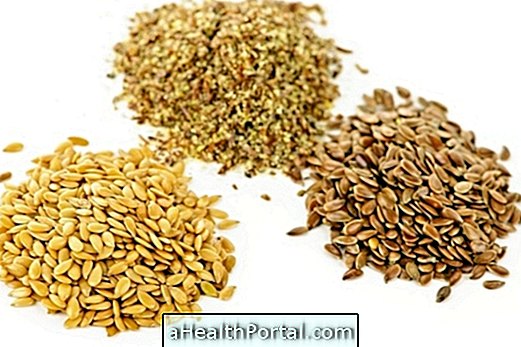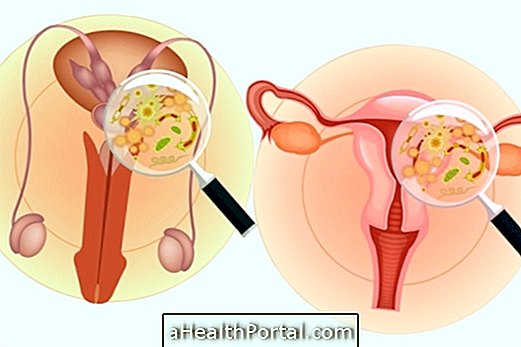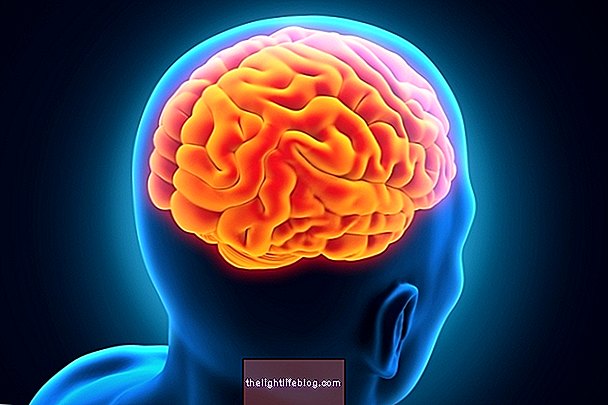Vaginal pain in pregnancy can happen due to several causes, from the simplest ones, such as the baby's weight gain or vaginal dryness, to the most serious ones, such as vaginal infections or sexually transmitted infections (STIs).
When the pregnant woman has, in addition to pain in the vagina, other warning signs such as bleeding, itching or burning, it is important to consult the gynecologist so that she can be evaluated and, if necessary, start the most appropriate treatment. Check out 10 warning signs that every pregnant woman should be on the lookout.
.jpg)
1. Pressure in the vagina
It is normal for the pregnant woman to feel pressure in the vagina during the third trimester of pregnancy, which can cause some discomfort and mild pain. This is because the baby is growing and gaining weight, which causes an increase in pressure on the pelvic floor muscles, which are the muscles that support the uterus, and the vagina.
What to do: There are some ways to try to relieve pressure and reduce pain, such as avoiding many hours of standing, as well as using a brace that supports your belly during the day. Although this discomfort is normal at the end of the pregnancy, it is important to consult the obstetrician if the pain is very severe and prevents the woman from walking, from doing normal daily activities or if it is accompanied by bleeding, for example. See the main changes that happen in the third trimester of pregnancy.
2. Swelling in the vagina
As the pregnancy progresses, it is normal to increase the pressure caused by the baby's weight and, consequently, decrease the blood flow to the pelvic region. When this happens, the region of the vagina may become swollen and cause pain.
What to do: The woman can put a cold compress on the outer region of the vagina and rest lying down to reduce the pressure on the pelvic area. After delivery the swelling should go away. Check out 7 causes of swollen vagina and what to do.
3. Dryness of the vagina
Dryness of the vagina is a relatively common problem during pregnancy and is mainly due to the increase in the hormone progesterone and the anxiety that women feel with the rapid changes that happen in their life.
This anxiety leads to decreased libido and, subsequently, decreased vaginal lubrication, ultimately causing pain in the vagina, especially during sexual intercourse.
What to do: It is essential to use strategies to reduce dryness of the vagina. If the dryness happens due to anxiety, it is important to consult a psychologist so that the woman is given strategies to relieve anxiety.
On the other hand, if the dryness of the vagina occurs due to a lack of lubrication, the woman may try to increase the time of foreplay before penetration or use artificial lubricants, such as gels suitable for the vagina. Know what can cause vaginal dryness and how to treat it.
_2.jpg)
4. Intense sexual intercourse
Vaginal pain during pregnancy can arise after intense sexual intercourse in which, due to friction caused by penetration or the lack of lubrication, the wall of the vagina may be bruised and swollen, causing pain.
What to do: Before starting penetration it is essential that the woman is lubricated to avoid lesions on the wall of the vagina and pain during sexual intercourse. See how to improve female lubrication.
5. Vaginismus
Vaginismus occurs when the muscles of the vagina contract and are unable to relax naturally, causing pain in the vagina and difficulty in penetration. This situation can arise during pregnancy or persist even before pregnancy.
What to do: It is important to understand if vaginismus is associated with psychological causes, such as trauma, anxiety, fear or due to physical causes such as vaginal trauma or a previous normal birth. For the woman to know if she has vaginismus she should go to the pelvic physiotherapist, who can assess the pelvic muscles and recommend the most appropriate treatment. Better understand what vaginismus is, symptoms and how to treat it.
6. Allergy in the intimate region
Allergy in the intimate area can happen when the pregnant woman uses some product, such as soaps, condoms, vaginal creams or lubricating oils, which contain irritating ingredients, causing swelling, itching, redness and pain in the vagina.
What to do: It is important to identify the product that caused the allergy and stop using it. To relieve symptoms, a cold compress can be placed on the outer region of the vagina. If the symptoms do not improve, or if they get worse, it is important to go to the obstetrician to identify the cause and start the appropriate treatment. Know the symptoms of condom allergy and what to do.
_3.jpg)
7. Vaginal infections
Vaginal infections are caused by fungi, bacteria or viruses and can cause irritation, itching, swelling or pain in the vagina. This type of infection is usually caused by wearing synthetic, tight, damp clothes or the clothes of another infected person, or when the woman does not perform adequate intimate hygiene.
What to do: to avoid vaginal infections, the pregnant woman should do daily intimate hygiene and wear comfortable and clean clothes. However, it is necessary to go to the gynecologist to confirm the diagnosis and initiate appropriate treatment, which may include the use of antibiotics. Learn how to avoid vaginal infection.
8. IST's
Sexually transmitted infections, known as STIs, can cause pain in the pregnant woman's vagina, as is the case with chlamydia or genital herpes and, in addition, they can also cause itching and burning sensation.
STIs are caused by viruses, bacteria or fungi and happen due to unprotected sex with an infected person.
What to do: in the presence of symptoms that may indicate an STI, the pregnant woman must go to the gynecologist to confirm the infection and indicate the appropriate treatment. Check out the main symptoms of STIs in women and what to do.
9. Bartholin's cyst
Pain in the vagina during pregnancy can happen when there are cysts in the Bartholin glands, which are at the entrance to the vagina and are responsible for vaginal lubrication. This cyst appears due to obstruction of the gland and, in addition to pain, can cause vaginal swelling.
What to do: If symptoms of swelling and vaginal pain appear, it is important to consult an obstetrician so that he can examine the vagina and adjust the treatment, which usually consists of using pain medication and antibiotics, if there is an associated infection. Better understand what are Bartholin's cysts, their causes and treatment.
Was this information helpful?
Yes No
Your opinion is important! Write here how we can improve our text:
Any questions? Click here to be answered.
Email in which you want to receive a reply:
Check the confirmation email we sent you.
Your name:
Reason for visit:
--- Choose your reason --- DiseaseLive betterHelp another personGain knowledge
Are you a health professional?
NoMedicalPharmaceuticalsNurseNutritionistBiomedicalPhysiotherapistBeauticianOther
Bibliography
- VIRTUAL HEALTH LIBRARY. What is a Naboth cyst?. Available in: . Accessed on 27 Jan 2021
- PORTUGUESE SOCIETY OF GYNECOLOGY. REVIEW OF CONSENSUS ON VULVOVAGINAL INFECTIONS. 2012. Available at:. Accessed on 27 Jan 2021
- FEMALE. Does pelvic physiotherapy improve genitopelvic pain / penetration disorders?. 2017. Available at:. Accessed on 27 Jan 2021
- FEMALE. Female sexual dysfunction. 2019. Available at:. Accessed on 27 Jan 2021
- NEUROENDOCRINOLOGY LETTERS. Sexual activity during Pregnancy. 2016. Available at:. Accessed on 27 Jan 2021
- UNM HOSPITALS. What to Know During Your Pregnancy: Weeks 34-42. Available in: . Accessed on 27 Jan 2021
- HEALTHLINE. Why Vaginal Pressure During Pregnancy Is Totally Normal. Available in: . Accessed on 27 Jan 2021
- BORN: SÃO JOÃO. Pregnancy complaints that should lead to urgency. Available in: . Accessed on 27 Jan 2021
.jpg)



